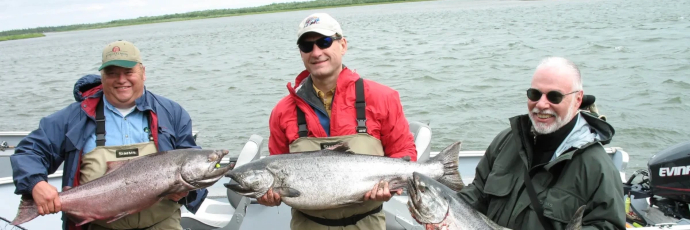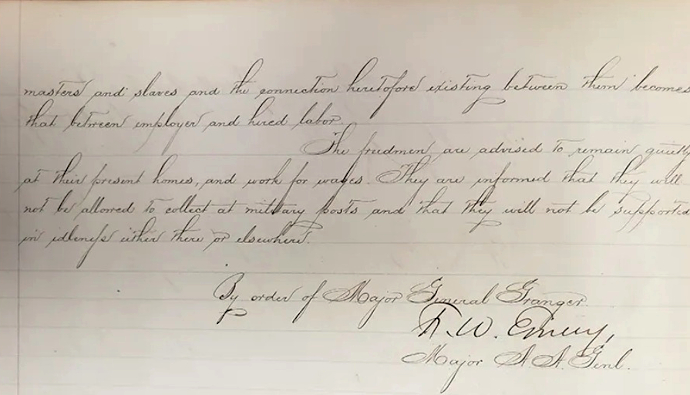“There are things that Big Tech does that deserve to be punished, but the real goal here is not punishing Big Tech… It is helping save public interest news and information.” Zuckerberg, seen here addressing his followers back in 2017 in San Jose, California, has a very different idea. Photo by Anthony Quintano.
Some advocates of the bargaining code model seem focused on punishing Big Tech and “aren’t really giving a great deal of thought to what the future of journalism requires,” said Tim Karr of Free Press.
Meta goes “nuclear” over a Canadian Online News Act
that ignores the root of journalism’s ongoing crisis
While Meta is under fire for planning to yank journalistic content off Facebook and Instagram in Canada over the Online News Act, some policy experts are criticizing Canadian lawmakers for passing the legislation, arguing that the backlash was predictable plus the law won’t adequately address issues with Big Tech or the media industry.
Free Press senior director of strategy and communications Tim Karr on Friday warned of the “real world impacts” of Meta’s plans for Canadian users, pointing out that “there are forest fires now raging across parts of Canada,” so “having access to news and information could be a matter of life or death for a lot of people.”
Karr is also critical of legislation like the new Canadian law, also known as Bill C-18. The optics are “very good for lawmakers,” he told Common Dreams in an interview, “but the hard reality is that while it may look good in the papers for them… it does very little to actually get at the root of the problem of the crisis in journalism.”
After Bill C-18 received royal assent on Thursday, Minister of Canadian Heritage Pablo Rodriguez said in a statement that “a free and independent press is fundamental to our democracy. Thanks to the Online News Act, newsrooms across the country will now be able to negotiate fairly for compensation when their work appears on the biggest digital platforms.”
“It levels the playing field by putting the power of Big Tech in check and ensuring that even our smallest news business can benefit through this regime and receive fair compensation for their work,” added Rodriguez, who leads the Department of Canadian Heritage—which must now draft regulations related to the law, a process that could take six months or longer.
The department’s statement highlighted how the global journalism funding crisis has impacted Canada, noting that 474 outlets have closed in 335 Canadian communities since 2008, a third of industry jobs disappeared across the country from 2010-16, and overall revenue for broadcast television, radio, newspapers, and magazines fell by nearly $6 billion from 2008-20.
Building on a model enacted in Australia two years ago, Bill C-18 is designed to inject money into the news media sector through agreements under which dominant digital platforms—such as Alphabet-owned Google and Meta’s Facebook and Instagram—compensate Canadian journalistic outlets for their content. Smaller news outlets will be able to collectively bargain for deals.
When Australia’s News Media Bargaining Code took effect in early 2021, Facebook—which changed its parent company name to Meta later that year—initially blocked the content of Australian news outlets, which Amnesty International campaigner Tim O’Connor at the time called an “extremely concerning” decision that “demonstrates why allowing one company to exert such dominant power over our information ecosystem threatens human rights.”
The tech giant reversed course within a week—and despite Wall Street Journal reporting last June that “Facebook is reexamining its commitment to paying for news,” the voluntary agreements in Australia have so far held up. According to a December report from the Australian government, Meta and Google have inked more than 30 deals with the nation’s news outlets.
“At least some of these agreements have enabled news businesses to, in particular, employ additional journalists and make other valuable investments to assist their operations,” says the Australian report. “While views on the success or otherwise of the code will invariably differ, we consider it is reasonable to conclude that the code has been a success to date.”
Whether such deals will materialize in Canada remains to be seen, but the technology companies have fiercely opposed Bill C-18. The Toronto Starnoted that “earlier this year, Google quietly launched a test designed to filter out news content on its search engine for a small percentage of its Canadian users. Meta followed suit in June, conducting a test that is still ongoing and limits news sharing for some of its users.”
Google spokesperson Jenn Crider said Thursday that “we’re doing everything we can to avoid an outcome that no one wants. Every step of the way, we’ve proposed thoughtful and pragmatic solutions that would have improved the bill and cleared the path for us to increase our already significant investments in the Canadian news ecosystem. So far, none of our concerns have been addressed. Bill C-18 is about to become law and remains unworkable. We are continuing to urgently seek to work with the government on a path forward.”
Meta, meanwhile, chose what Karr—a critic of both the bargaining code model and Big Tech—called the “nuclear option,” and confirmed Thursday that “news availability will be ended on Facebook and Instagram for all users in Canada” before the law takes effect.
Rodriguez responded that “Facebook knows very well that they have no obligations under the act right now. Following royal assent of Bill C-18, the government will engage in a regulatory and implementation process. If the government can’t stand up for Canadians against tech giants, who will?”
The American Economic Liberties Project tweeted Friday that “Meta’s back on its blackmail routine, but Canadian lawmakers know better,” echoing Erik Peinert, the group’s research manager and editor, who had similarly praised the country’s policymakers a day earlier.
“Canadian lawmakers stepped up today to save news outlets that are being eaten alive by Big Tech’s business model of monetizing their content with no compensation,” Peinert said in a Thursday statement. “Similar legislation has already restored Australia’s news landscape, injecting millions into the industry to support a new generation of journalists and strengthen democracy.”
Rather than applauding Canadian lawmakers, critics like Karr and professor Michael Geist, the Canada research chair in internet and e-commerce law at the University of Ottawa, suggested that they “have made an epic miscalculation.”
Meta’s move “was both predictable and entirely avoidable,” considering that the company “never strayed from the position that the bill rendered Canadian news uneconomic on its platforms and that it would stop news sharing in response,” according to Geist.
As he wrote Friday on Substack:
News is not a significant part of Facebook feeds (the company says about 3%) and it is highly substitutable (users spend the same amount of time on the platform whether presented with news links or photos of friends). But it is important to many news outlets, who told the Senate studying the bill that it provides between 17-30% of their traffic. This is particularly true for small, independent, and digital-first outlets that often rely on social media to develop readership and establish community. Losing those free referral links will have a damaging effect on those news outlets and undermine competition, leading to reduced traffic, less ad revenue, and fewer subscribers. Indeed, the publishers know the value of Facebook since they are the ones that post the majority of links to their own articles. Tough talk from Rodriguez will be cold comfort for those who have lost those links and lost revenues due to government policy.
“Had the government listened to anyone other than media lobbyists, it would have considered alternatives such as a fund model that would have avoided payments for links, concerns about press independence, as well as risks to trade and copyright obligations,” Geist added. “But in a process that initially even tried to exclude Meta from appearing before committee, there was no room for dissenting views. And now there will be no room for Canadian news on the world’s leading social media platform as part of the government’s made-in-Canada internet.”
This week’s developments in Canada could inform debates about such bills elsewhere, including in the United States. Peinert on Thursday urged U.S. lawmakers considering the Journalism Competition and Preservation Act (JCPA), sponsored by Sen. Amy Klobuchar (D-Minn.), to “follow Australia and Canada’s lead.” Anti-monopoly campaigners have also welcomed a similar bill by California state lawmakers.
Karr has warned against measures like the JCPA and the new Canadian law. He noted Friday that “Free Press is no fan of big social media companies and we spend a good portion of our time advocating against a lot of the things that companies like Facebook, Twitter, and Google do.”
“But it feels to me oftentimes that the impetus of the support for the bargaining code bills in Australia, Canada, and the United States is merely to punish Big Tech—and, of course, there are things that Big Tech does that deserve to be punished, but the real goal here is not punishing Big Tech,” he stressed. “It is helping save public interest news and information… creating a model that subsidizes the type of news production, local news in particular, accountability journalism, that has gone missing as a result of the implosion of the news industry.”
It is no longer “economically viable for local newspapers to operate on the model that they’ve been operating on for the last century,” Karr told Common Dreams. “Unless we take a serious look at the shifting economics of news production and create legislation meant to address that, we’re going to just be kind of bailing water out of a sinking ship.” However, he argued, advocates of bargaining bills “aren’t really giving a great deal of thought to what the future of journalism requires.”
With the Australian code, “there isn’t a lot of transparency” regarding negotiations, because it’s not legally mandated, and “Google and Facebook initially struck deals with some of the consolidated outlets there,” he explained. The approach pursued by Australia and Canada “favors large and often very profitable news organizations while disadvantaging smaller news organizations that might be serving minority communities or other niche populations.”
It also creates “this kind of clickbait gold rush where you have outlets just trying to put items in social media that generate a lot of clicks and a lot of traffic so that they can go back to these platforms and ask for a lot of money,” he warned.
Australia and Canada’s laws advanced in part because “legacy media outlets have been very aggressive in lobbying… because they know it just lines their pockets,” Karr said. “That’s been our main complaint about the JCPA and other bargaining code bills, is that they’re the wrong solution… to the crisis in journalism. In fact, they kind of ignore the crisis.”
Passing such policies not only fails to address problems such as news deserts, “it actually sets us back because… lawmakers have limited bandwidth for all of the issues that they have to deal with,” he argued. Because “there is a political desire to do something about these very powerful tech companies,” these measures allow lawmakers “to check that box while at the same time saying that they’re doing something to help save journalism.”
One alternative is creating an independent fund for public interest journalism. For the United States specifically, “Free Press has proposed an ad tax that would be levied on online advertising revenues,” Karr detailed Thursday at Tech Policy Press. “A 1% tax would generate around $2 billion annually—which would fund a public interest media endowment that would place a premium on funding civic engagement and accountability journalism over clickbait and disinformation.”
“Unlike the JCPA, it wouldn’t rely on a convoluted bargaining code that’s built on a false understanding of the news business,” he wrote. “Instead, this approach recognizes the actual economics of news, treats journalism as a public good, and creates a structure through which funds actually support the production and distribution of news and information that are needed most.”
Contact us by email at fund4thepanamanews@gmail.com
To fend off hackers, organized trolls and other online vandalism, our website comments feature is switched off. Instead, come to our Facebook page to join in the discussion.
These links are interactive — click on the boxes
















































